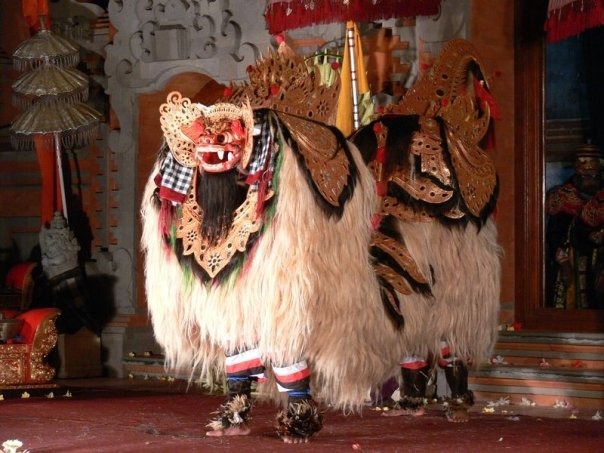When you think of Bali, the idyllic landscapes, vibrant arts scene, and spiritual ambiance come to mind. But one destination that captures the heart of Balinese culture is Ubud. Nestled in the lush hills of Central Bali, Ubud is not just a feast for the eyes but also a treasure chest of seasonal festivals and attractions that reflect the island’s rich heritage. I remember the first time I stepped into this enchanting town; it was during the Ubud Writers & Readers Festival, and the energy was palpable. Let’s dive into some of the seasonal festivals and attractions in Ubud that you should definitely experience.
Ubud Writers & Readers Festival
A highlight of Ubud’s calendar is the Ubud Writers & Readers Festival, which usually takes place in October. This festival is a melting pot for literary enthusiasts, authors from around the globe, and aspiring writers like myself. The air buzzes with creativity as panel discussions, book launches, and workshops fill the days. I can vividly recall sitting in a crowded room, listening to a seasoned author share their journey—tears rolling down my cheeks, I connected so deeply with their story.
Travelers and locals alike swarm the town, transforming cafes into cozy reading nooks and performance spaces. If you plan to attend, I recommend booking your tickets in advance and perhaps signing up for a few workshops. It’s a fantastic way to meet like-minded individuals and maybe even get inspiration for your next big project.
Galungan Festival
Every 210 days, Ubud comes alive with the Galungan Festival, a celebration of the triumph of good over evil. This festival showcases the unique traditions and rituals of the Balinese Hindu religion. If you’re lucky to be in Ubud during this time, you’ll witness magnificent ‘penjor’ decorations lining the streets—beautiful bamboo poles adorned with coconut leaves and fruits, symbolizing prosperity.
I remember wandering through the local markets during Galungan and feeling a sense of unity as families prepared their offerings and adorned their homes. The vibrant colors, the scent of incense, and the sound of traditional gamelan music created an atmosphere filled with joy. If you’re visiting, don’t hesitate to engage with the locals—they often welcome curious visitors and will proudly share the significance of their rituals.
Bali Spirit Festival
The Bali Spirit Festival, usually held in March or April, is a weeklong celebration of yoga, dance, and music. Yoga enthusiasts from around the world gather to practice, learn, and connect. The energy at this festival is unlike anything else—imagine doing yoga at sunrise surrounded by lush rice paddies with the soft sounds of nature embracing you.
I took part in a joyful dance workshop during my first Bali Spirit Festival that ended with a group of us bursting into laughter after some slightly awkward dance moves! The essence of this festival is all about connection—connect with yourself, with nature, and with others. It’s perfect for those seeking rejuvenation, relaxation, or even just a little fun. Just make sure to book your accommodation early, as Ubud fills up quickly!
Ubud Art Market
While not strictly a festival, the Ubud Art Market is an attraction that runs year-round but takes on a special charm during annual events. The market is filled with vibrant handicrafts, textiles, and souvenirs—all crafted by local artisans. Strolling through the market, you’ll find everything from beautiful batik to handcrafted jewelry.
I recall spending hours here, lost in the colors and textures of the items. It’s the ideal place to pick up unique gifts or mementos of your trip. The art market is an experience in itself; don’t forget to engage with the vendors! Many have fascinating stories behind their crafts. Be prepared to bargain a little; it’s part of the fun!
Nyepi Day (Day of Silence)
If you find yourself in Ubud during Nyepi Day, which usually falls in March, you will experience a unique cultural event. Nyepi, the Balinese New Year, is a day of silence and reflection, where the entire island comes to a standstill. The day before, however, is the vibrant Ogoh-Ogoh parade, where large, colorful effigies representing evil spirits are carried through the streets.
I still remember the excitement in the air as locals carried massive statues, chanting and dancing. It felt like a carnival, and everyone participated! But come Nyepi Day, the entire island observes silence. No lights, no activity. It’s a day to reflect and reconnect with oneself. If you’re staying in Ubud, this is the perfect day to relax at a spa or enjoy a quiet reading session.
Practical Tips for Visiting Ubud
– Transportation: Rent a scooter or hire a driver if you plan to explore beyond the town. Traffic can be challenging, but having your own means of transport offers flexibility.
– Stay Hydrated: The tropical heat can be intense. Keep a reusable water bottle handy.
– Respect Culture: If you are attending a local festival, be aware of appropriate dress codes (e.g., sarongs in temples) and customs.
– Engage with Locals: Don’t hesitate to strike up a conversation. They often have fascinating insights and stories that can enhance your experience.
Conclusion
Ubud is not just a place; it’s an experience that pulses with life, especially during its seasonal festivals. From the artistic energy of the Ubud Writers & Readers Festival to the spiritual practices of Nyepi, each event offers a glimpse into the beautiful and complex tapestry of Balinese culture. So pack your bags and immerse yourself in the rhythmic festivals of Ubud—you’ll create memories that last a lifetime!






